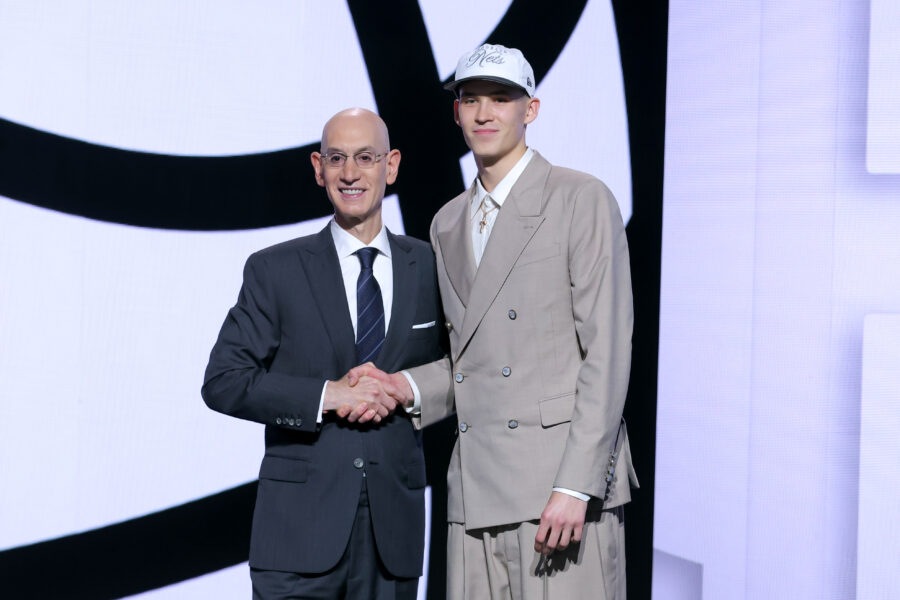Shout louder than the competition
If you don’t have a competitive advantage, don’t compete ~ Jack Welch
In our modern, crowded world where messages compete for attention every waking moment, marketers face a dilemma: how to be heard. From TikTok influencers to legacy brands, everyone is vying for the consumer’s ear.
But few pause long enough to ask, how does one truly rise above the noise? We find one of the most powerful lessons on this, not in a marketing textbook, but in the pages of Scripture in the bold, audacious cry of a blind man named Bartimaeus.
Blind Bartimaeus appears only briefly in the Gospel of Mark (10:46–52), but his impact lingers. He was sitting by the roadside in Jericho, a beggar in a crowd filled with people. When he heard that Jesus was passing by, he shouted: “Jesus, Son of David, have mercy on me!” The crowd rebuked him. They told him to be quiet. But Bartimaeus shouted all the more. He raised his voice above the disapproval.
He ignored the pressure to conform, to remain silent, to fade into the background. And in doing so, he got what others didn’t—Jesus’ attention. That moment is more than a story of healing; it’s a masterclass in market disruption. Bartimaeus, without resources, status or sight, managed to break through the noise. He teaches us something every marketer and entrepreneur must learn: if you don’t stand out, you will be tuned out.
Jericho was no quiet town. It was a thoroughfare for travellers, merchants and pilgrims. The road Jesus walked that day would have been noisy—vendors hawking goods, animals braying and people talking. Bartimaeus didn’t just have to overcome his blindness; he had to rise above the literal and social noise around him.
That’s no different than today’s world. According to Forbes, the average American is exposed to between 4,000 and 10,000 advertisements each day. From banner ads to branded content, we are inundated. It’s not just what you say anymore—it’s how loud, how clear and how compelling your voice is.
This is not about volume alone. “Shouting” in marketing is not simply making more noise. It’s about clarity, distinction and timing. Bartimaeus’ cry was specific. He didn’t just yell for help; he called out Jesus’ messianic title—“Son of David”. That was no generic plea. It was targeted messaging, born from understanding his audience.
In 1990, motivational author Zig Ziglar told a story during one of his classic seminars about a struggling furniture salesman in a mid-size Texas town. Sales were down, and competition was fierce. The man was polite, well-dressed and respectful—but invisible. Ziglar advised him to redefine his approach. Instead of saying: “Let me know if you need help”, Ziglar taught him to say: “If I could show you a way to save US$300 on the right recliner today, would you be interested?” Sales increased by 40 percent over the next two months. Why? Because he went from polite noise to purposeful signal.
That’s what Bartimaeus did. His plea wasn’t vague. He didn’t cry out: “Hey, someone help!” He called Jesus by the name that revealed who he believed Jesus was, and what he could do. That kind of precision is what marketers call a value proposition. It answers the question: Why should anyone pay attention to you? Shouting Doesn’t Mean Screaming. Let’s address something upfront. When we say: “Shout louder than the competition”, we’re not advocating aggression. We’re talking about intentional, standout messaging.
Think of how Dollar Shave Club entered a market long dominated by Gillette. With a budget under US$5,000, founder Michael Dubin released a now-famous 2012 video that started with the line, “Our blades are f***ing great”. It was humorous, irreverent and unlike anything else in the space. In less than two days, it generated 12,000 orders. Within 18 months, the company had over a million subscribers. Dubin wasn’t louder in the traditional sense—he was sharper. The message was disruptive because it sounded like the customer, not the corporation. Like Bartimaeus, it cut through the crowd by saying what no one else dared.
Many marketers are too polite for their own good. They don’t want to be disruptive. They wait for permission to be heard. But interruption, done right, can be powerful. When Steve Jobs introduced the iPhone in 2007, he interrupted three major industries at once: computing, telecom and media.
He didn’t whisper his message—he declared a “revolution”. That was the shout of a Bartimaeus. He saw the moment and seized it. Blind Bartimaeus didn’t get a scheduled appointment with Jesus. He interrupted. And it changed his life. Likewise, marketers must know when to seize the moment, when to break the mould and when to disrupt respectfully. Silence may be golden in relationships; but in marketing, silence is expensive.
Perhaps the most impressive part of Bartimaeus’ strategy wasn’t just that he shouted—but that he did so in the face of criticism. The crowd told him to be quiet. They rebuked him. That happens today, too. Bold marketing often meets resistance. Critics will say your message is “too edgy”, “too different”, or “too risky”. When Chick-fil-A first closed its stores on Sundays—a decision based on Christian principles—many in the restaurant industry predicted disaster. But rather than hurt the brand, it clarified it. Customers admired the consistency. Today, Chick-fil-A generates more revenue per location than any other fast-food chain in the U.S., despite losing a full day of sales every week. Sometimes bold decisions, born of belief, shout louder than slick campaigns.
Larry Burkett, the late Christian financial advisor and author, used to say: “God honours bold faith”. He wasn’t talking about recklessness, but about trust backed by action. Bartimaeus’ shout was bold because it was rooted in belief. He knew Jesus could heal him.
That belief drove him to speak up, and not shut up. Marketing that lacks belief in the product—or the value of the audience—is like a weak prayer. It goes out, but it has no fire. In one of his many counselling sessions, Burkett once told a small-business owner struggling with fear to stop being “apologetic” in his marketing. “If what you offer has value,” Burkett said, “then why whisper it?” We’ve adopted a culture that favours soft-selling, quiet content and passive presence. But in a world of competitors blasting messages 24/7, whispers are wasted.
Psychologically, the human brain is wired to respond to contrast. That’s why unexpected things capture attention. Studies in the Journal of Consumer Psychology show that novelty triggers dopamine—the brain chemical associated with reward. That’s why the new gets noticed. Bartimaeus, in a crowd of passive onlookers, became novel. He acted. He spoke. He made a scene. And that contrast drew Jesus’ attention.
Marketers must learn this same truth. Blend in, and you vanish. Stand out, and you get seen. This doesn’t mean being sensational for its own sake. It means creating moments that matter, messages that resonate and brands that feel alive.
Create a message worth shouting. Of course, shouting nonsense is just noise. What made Bartimaeus’ cry powerful wasn’t just that it was loud—but that it was true. “Son of David, have mercy on me!” He identified the need. He named the solution. And he wrapped it in emotion. Marketing needs this kind of clarity. Vague messages like “We’re here to help” or “Quality you can trust” are as invisible as the air. People don’t buy what you do; they buy why you do it—and they buy based on how clearly you say it.
That’s why Simon Sinek’s famous “Start With Why” talk has over 60 million views. He captured a truth that Bartimaeus embodied 2,000 years ago: When you speak from deep conviction, people notice. These companies understood what Bartimaeus did: that message and tone must match audience and context. They didn’t just add volume—they added relevance.
The story ends with Jesus stopping in His tracks and calling Bartimaeus over. The man throws off his cloak, leaps up and receives healing. But don’t miss what comes next: he followed Jesus. That’s the end goal of good marketing, too—not just attention, not just transaction, but relationship.
Conversion is not a finish line; it’s a beginning. Bartimaeus’ boldness didn’t just get him a miracle. It got him a mission. Marketers, take note: your audience doesn’t want to be shouted at. They want to be shouted for. Speak boldly, yes—but speak on their behalf. Address their pain, meet their needs, answer their questions. Do that, and you’re not just marketing—you’re ministering.
Blind Bartimaeus didn’t have perfect technique. He had heart. He had clarity. And he had courage. Those three traits can turn any marketing plan into a movement. You don’t need a million-dollar budget to break through the noise. You need conviction.
You need message-market fit. And above all, you need the boldness to speak when the world says stay silent. In the end, the only thing worse than being criticised for being too loud… is being forgotten for saying nothing at all. So shout—wisely, winsomely and with purpose. Your audience is waiting to hear you.

Post Views: 142











